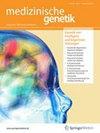The changing face of circulating tumor DNA (ctDNA) profiling: Factors that shape the landscape of methodologies, technologies, and commercialization
IF 1.4
4区 生物学
Q4 GENETICS & HEREDITY
引用次数: 0
Abstract
Abstract Liquid biopsies, in particular the profiling of circulating tumor DNA (ctDNA), have long held promise as transformative tools in cancer precision medicine. Despite a prolonged incubation phase, ctDNA profiling has recently experienced a strong wave of development and innovation, indicating its imminent integration into the cancer management toolbox. Various advancements in mutation-based ctDNA analysis methodologies and technologies have greatly improved sensitivity and specificity of ctDNA assays, such as optimized preanalytics, size-based pre-enrichment strategies, targeted sequencing, enhanced library preparation methods, sequencing error suppression, integrated bioinformatics and machine learning. Moreover, research breakthroughs have expanded the scope of ctDNA analysis beyond hotspot mutational profiling of plasma-derived apoptotic, mono-nucleosomal ctDNA fragments. This broader perspective considers alternative genetic features of cancer, genome-wide characterization, classical and newly discovered epigenetic modifications, structural variations, diverse cellular and mechanistic ctDNA origins, and alternative biospecimen types. These developments have maximized the utility of ctDNA, facilitating landmark research, clinical trials, and the commercialization of ctDNA assays, technologies, and products. Consequently, ctDNA tests are increasingly recognized as an important part of patient guidance and are being implemented in clinical practice. Although reimbursement for ctDNA tests by healthcare providers still lags behind, it is gaining greater acceptance. In this work, we provide a comprehensive exploration of the extensive landscape of ctDNA profiling methodologies, considering the multitude of factors that influence its development and evolution. By illuminating the broader aspects of ctDNA profiling, the aim is to provide multiple entry points for understanding and navigating the vast and rapidly evolving landscape of ctDNA methodologies, applications, and technologies.循环肿瘤 DNA (ctDNA) 分析的变迁:影响方法、技术和商业化前景的因素
摘要 长期以来,液体活检,特别是循环肿瘤 DNA(ctDNA)分析,一直有望成为癌症精准医疗的变革性工具。尽管ctDNA分析经历了漫长的潜伏期,但最近却出现了强劲的发展和创新浪潮,这表明它即将被纳入癌症管理工具箱。基于突变的ctDNA分析方法和技术的各种进步大大提高了ctDNA检测的灵敏度和特异性,如优化的预分析、基于大小的预富集策略、靶向测序、增强型文库制备方法、测序误差抑制、集成生物信息学和机器学习。此外,研究突破还扩大了ctDNA分析的范围,不仅限于对血浆中凋亡的单核糖体ctDNA片段进行热点突变分析。这一更广阔的视角考虑了癌症的其他遗传特征、全基因组特征、经典和新发现的表观遗传修饰、结构变异、不同的细胞和机理ctDNA起源以及其他生物样本类型。这些发展最大限度地提高了 ctDNA 的效用,促进了具有里程碑意义的研究、临床试验以及 ctDNA 检测、技术和产品的商业化。因此,人们越来越认识到 ctDNA 检测是患者指导的重要组成部分,并将其应用于临床实践中。尽管医疗机构对 ctDNA 检测的报销仍然滞后,但其接受度正在不断提高。在这项工作中,我们全面探讨了ctDNA分析方法的广泛前景,并考虑了影响其发展和演变的众多因素。通过阐明ctDNA图谱分析更广泛的方面,旨在提供多个切入点,以了解和驾驭ctDNA方法学、应用和技术的广阔而快速发展的前景。
本文章由计算机程序翻译,如有差异,请以英文原文为准。
求助全文
约1分钟内获得全文
求助全文
来源期刊

Medizinische Genetik
Medicine-Genetics (clinical)
CiteScore
1.40
自引率
9.10%
发文量
48
审稿时长
>12 weeks
期刊介绍:
medizinischegenetik is a scientific journal that is owned and published by the German Society of Human Genetics e.V. since 1989. The journal was founded by Prof. Jan Murken, München. Self-published until 2006, from 2007-2019 published at Springer Verlag and since 2020 at De Gruyter.
medizinischegenetik serves education and training among colleagues, the interdisciplinary exchange of knowledge in all areas of human genetics in clinics, practice, research and teaching. Each issue of the quarterly journal deals with a focus that provides a comprehensive overview of current developments in specific clinical pictures, technical developments and therapeutic approaches. All reviews are written in English language. The journal thus creates a platform for the international exchange of knowledge and increased awareness of German research activities in the scientific community.
In addition, medizinischegenetik contains information on activities in its own subject in the German-language section. This includes conference reports, association announcements, personnel matters, statements and guidelines. With health policy questions, historical retrospectives and comments on current developments, the profession takes a stand on human genetic issues in Germany, Austria and Switzerland.
 求助内容:
求助内容: 应助结果提醒方式:
应助结果提醒方式:


